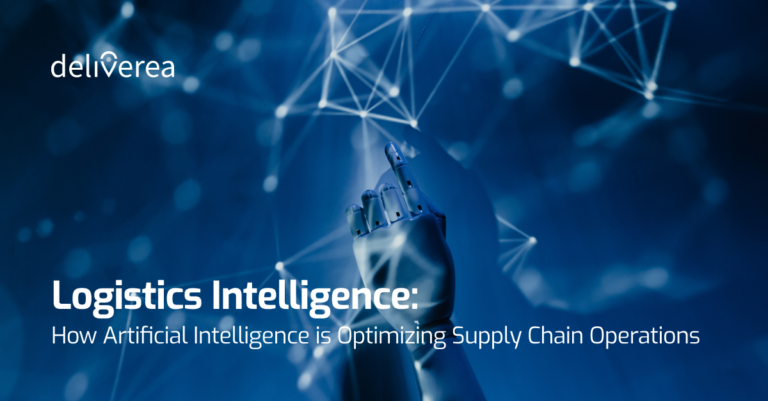Business Intelligence for Logistics and Supply Chain Optimization is revolutionizing the way businesses manage their supply chains. With the increasing complexity of global logistics, the integration of data analytics and business intelligence tools has become essential for making informed decisions. This approach not only enhances operational efficiency but also helps organizations adapt to market dynamics swiftly.

As we delve into this topic, it’s important to understand how these tools can transform logistics management, providing insights that drive cost reduction and improved service delivery. By leveraging real-time data and advanced analytics, companies can streamline their processes, mitigate risks, and optimize their supply chain strategies effectively.
In recent years, the advancements in technology have dramatically shaped the way we interact with the world around us. From the rise of smartphones to the proliferation of artificial intelligence, it’s almost impossible to imagine a day without technology influencing our lives. As we delve into the intricacies of this digital revolution, it becomes clear that the impact of technology extends far beyond mere convenience; it reshapes how we communicate, work, and even think.First and foremost, let’s explore the communication landscape.
Social media platforms, instant messaging apps, and video calling services have revolutionized how we connect with one another. Gone are the days of waiting weeks for a letter to arrive; now, we can send a message across the globe in a matter of seconds. This immediacy not only fosters closer relationships but also enables the rapid dissemination of information. For instance, platforms like Twitter and Facebook have become vital in sharing news, mobilizing social movements, and even impacting political landscapes.However, this ease of communication also comes with its challenges.
The rise of misinformation and fake news is a significant concern. The speed at which information spreads can lead to misunderstandings and the propagation of falsehoods. As individuals, it’s crucial to develop critical thinking skills and discern the credibility of sources before sharing information. In a world where a tweet can spark a global conversation, being informed is more important than ever.Next, we turn our attention to the workplace, which has undergone a metamorphosis due to technological innovations.
Remote work, once a rarity, has become the norm for many industries. Tools like Zoom, Slack, and Asana facilitate seamless collaboration, allowing teams to work effectively regardless of their physical location. This shift not only broadens the talent pool for employers but also offers flexibility for employees, contributing to a better work-life balance.Despite these advantages, remote work presents its own set of challenges.
The blurring of boundaries between professional and personal life can lead to burnout, as individuals struggle to “switch off” after work hours. Moreover, the lack of face-to-face interaction may hinder relationship building and collaboration. Organizations must be mindful of these potential pitfalls and work to foster a healthy remote work culture that encourages communication, camaraderie, and well-being.In addition to communication and work, technology has profoundly impacted education.
The traditional classroom setting is evolving into a more dynamic, interactive environment thanks to online learning platforms and digital resources. Students can now access a wealth of information at their fingertips, making education more accessible than ever. This democratization of knowledge empowers learners from diverse backgrounds to pursue their interests and passions, irrespective of geographical limitations.Nevertheless, it’s essential to acknowledge the digital divide that persists, as not everyone has equal access to technology.
This disparity can create gaps in educational opportunities, affecting those from lower socioeconomic backgrounds. As a society, we must strive to bridge this gap by advocating for equitable access to technology and resources, ensuring that every learner has the opportunity to thrive in this digital age.Furthermore, technology’s influence on our daily lives extends to health and wellness. Wearable devices, health apps, and telemedicine have transformed how we approach our well-being.
With the ability to monitor our fitness levels, track our sleep patterns, and consult with healthcare professionals remotely, individuals are more empowered to take charge of their health. This proactive approach to wellness is a significant shift from the traditional reactive model of healthcare.However, with the increased reliance on technology in health also comes concerns regarding privacy and data security.
As we share more personal information online, the risk of data breaches and misuse of sensitive information rises. It’s vital for both individuals and organizations to prioritize data protection and implement measures to safeguard personal information.As we embrace the future, it’s imperative to consider the ethical implications of technological advancements. Artificial intelligence, in particular, raises questions about privacy, surveillance, and job displacement.
While AI has the potential to enhance efficiency and productivity, it also poses ethical dilemmas that require careful consideration. As we navigate this complex landscape, fostering an ongoing dialogue about the responsible use of technology is essential.Looking ahead, the future of technology is undoubtedly exciting, yet it remains uncertain. As innovations continue to emerge at an unprecedented pace, we must remain adaptable and open to change.
Embracing lifelong learning and staying informed about technological trends will be crucial in navigating the evolving landscape. Moreover, cultivating a mindset that values ethics, empathy, and inclusivity will be paramount in shaping a future where technology serves to enhance the human experience rather than detract from it.In conclusion, the impact of technology on our lives is profound and multifaceted. From communication and work to education and health, it influences every aspect of our daily existence.
While we celebrate the benefits that technology brings, we must also be vigilant about the challenges it presents. By fostering a culture of informed engagement and ethical considerations, we can harness the power of technology to create a brighter, more connected world for future generations. Embracing change while remaining grounded in our values will enable us to navigate the complexities of the digital revolution with confidence and purpose.









